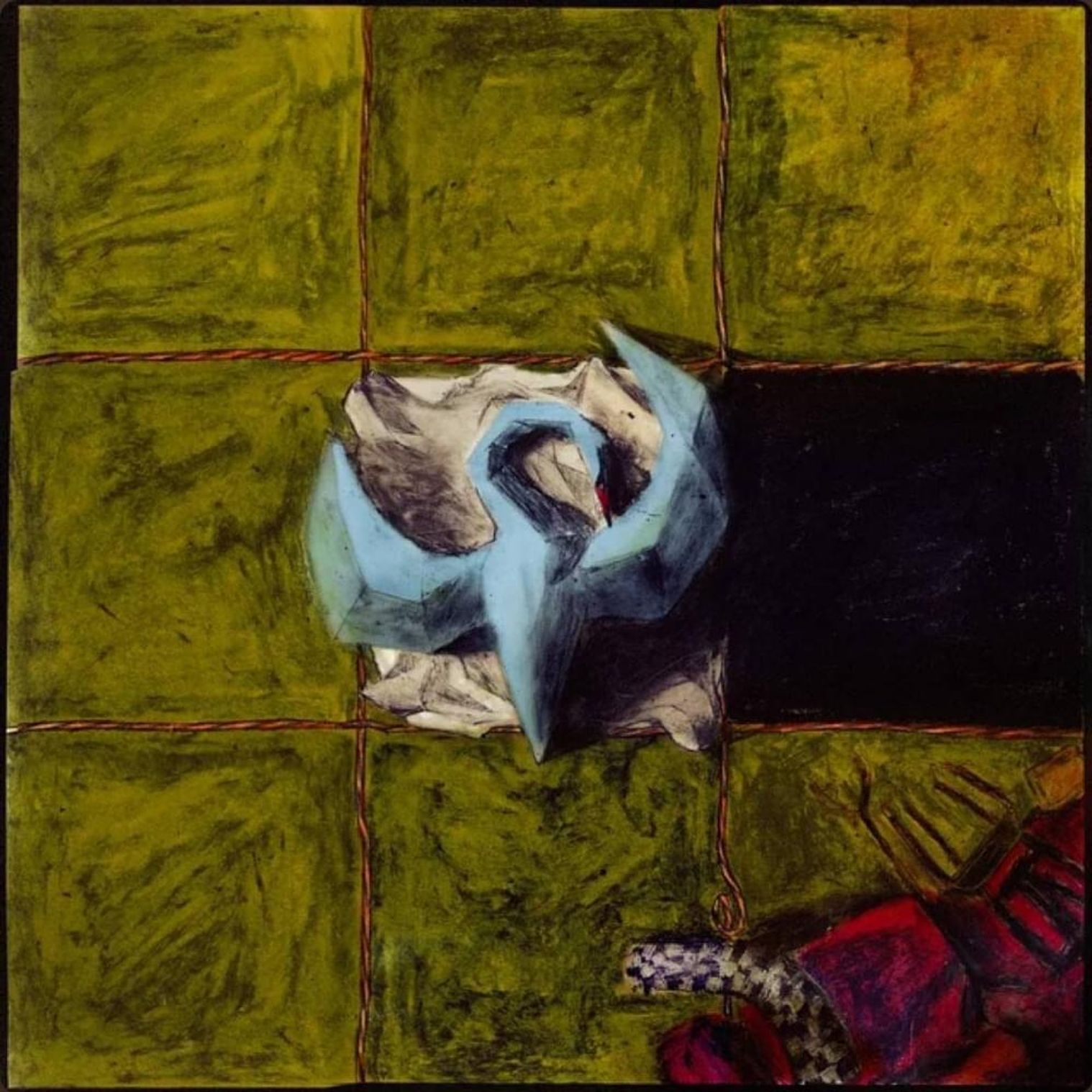Silence Yourself must've been a hard act to follow. It's not just that Savages' 2013 was a great album, though it absolutely was. It's that Silence Yourself was a closed system -- the sort of great album that suggests no great follow-up is possible. Savages arrived fully-formed, with a sound and an aesthetic and a point-of-view. It was tempting to call them a punk band; they had velocity and ferocity and vengeful intensity. But they weren't wild. They were spartan and meticulous, their music as efficient and carefully assembled as a German car. That album had no wasted motion, no extraneous sounds or gestures. It was new wave turned feral -- Elastica during wartime. And go ahead and ask Elastica how easy it is to come up with a sophomore album when your debut is an out-the-gate classic. In most cases, your only real option is to make an album that sounds like the first one but isn't as good. But Savages figured out a way out of that trap. On Adore Life, they go big.
A couple of years ago, Savages frontwoman Jehnny Beth wrote about going to see Soundgarden and about rediscovering all the old grunge giants that she'd missed out on when she was younger. In more recent months, she's recorded with Julian Casablancas, and Savages have covered Eagles Of Death Metal. Maybe it's a mistake to see a narrative in Beth's embrace of the last vestiges of rock's old heroic swagger, but I hear some of its influence on Adore Life. Savages have also spoken in awe of Swans, and they've recorded a whole collaborative full-length with the Japanese experimental psych-rock band Bo Ningen, and I hear some influence from that corner of the guitar-rock universe, too.
In its own way, Adore Life is just as sexual as anything by Soundgarden or the Strokes. It's sexual from a female perspective, of course, but when she's singing about domination or power dynamics, Beth can sound no less larger-than-life than, say, Robert Plant. "Come and be my muse," she snarls. And on the same song: "I hate your taste in music / You’re not the one I’ve been waiting for / Chase you around the tables / I want your fingers down my throat." Adore Life isn't as explicitly political an album as Silence Yourself, and Beth isn't as concerned about feeling alienated from a society that's never made room for her. But she shows no timidity in adapting her own version of the old classic-rock sex-god persona. And that, in itself, is political.
And the sound of the album is grander, more oceanic than it was on Silence Yourself. It's vast in a way that somehow recalls both Swans and Soundgarden. Savages can still sprint, as on "T.I.W.Y.G." But they're more likely to slow things down, to relax into spacious and wide-open grooves. "Silence Yourself" had two straight-up ballads, "Waiting For A Sign" and "Marshall Dear," the were among the album's most revelatory. On Adore Life, Savages absorb the slow-burn atmospherics of those songs into the rest of their sound. Adore Life has no such outliers. Instead, a song like "Adore," with its patient and confident tension, is way more of-a-piece with even the most riotous tracks that surround it.
The lyrics are different this time, too. Beth is singing, in sweeping and theatrical and nebulous ways, about love and life and loving life. As in: "I adore life," the koan she sings over and over on "Adore." In this Pitchfork story, Beth described the difference between the two albums thus: "The last one was the problem. This one’s the solution." The solution, if I'm reading Beth's lyrics right, is some combination of love and sex and confidence and willingness to withdraw from everything around you. "Something to be said about slowing down the world," she sings on "Slowing Down The World," a song about finding someone and holing up somewhere: "I offer you someone / to shape the world with light / Only with dark desires / Your nights will flame with fire." She sings a lot about wanting to feel new sensations and emotions, about pushing herself. But it's all internal and personal. It's not an album about a repressive world. It's one about making your own world.
The things that were great about Savages on the last album -- the barely-contained knife-edge fury, the clean and meticulous riffage, Beth's icy-monolith charisma -- are still very much evident on Adore Life. But we also get something new: A band striving to form a new language, to express rapture as well as rage. If Silence Yourself was all exquisite tension, Adore Life begins to offer something like relief.
Adore Life is out 1/22 on Matador.
[videoembed size="full_width" alignment="center"][/videoembed]
[videoembed size="full_width" alignment="center"][/videoembed]
[videoembed size="full_width" alignment="center"][/videoembed]
Other albums of note out this week:
• Chairlift's idiosyncratic pop blissout Moth.
• Jesu and Sun Kil Moon's wordily sad self-titled collaboration.
• Ty Segall's bugged-out psych-rocker Emotional Mugger.
• Eleanor Friedberger's relentlessly clever and pleasant New View.
• Shearwater's sweeping, majestic art-rocker Jet Plane And Oxbow.
• Tortoise's intuitive comeback The Catastrophist.
• Washer's fun self-titled DIY debut.
• Suede's arch, glammy return Night Thoughts.
• Tricky's stoic, personal Skilled Mechanics.
• Former Immortal frontman Abbath's self-titled black metal solo album.
• Trail Of Dead frontman Conrad Keely's solo move Original Machines.
• Tindersticks' reliably apocalyptic The Waiting Room.
• Adrian Younge's orchestral soul LP Something About April II.
• The Besnard Lakes' indie progger A Coliseum Complex Museum.
• Pop. 1280's misanthropic postpunk rumble Paradise.
• NZCA Lines' synthpop dance party Infinite Summer.
• Blouse leader Charli Hilton's solo debut Palana.
• John Cale's self-mythologizing kinda-reissue M:FANS.
• Indie godfathers Half Japanese's latest missive Perfect.
• Bonnie "Prince" Billy's Peel Sessions collection Pond Scum.
• CTM's Suite For A Young Girl mini-album.
• Ghost Against Ghost's Unarm EP.
• Joel Michael Howard's I Feel Nauseous EP.






